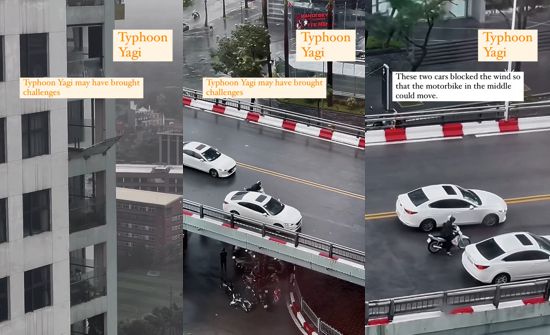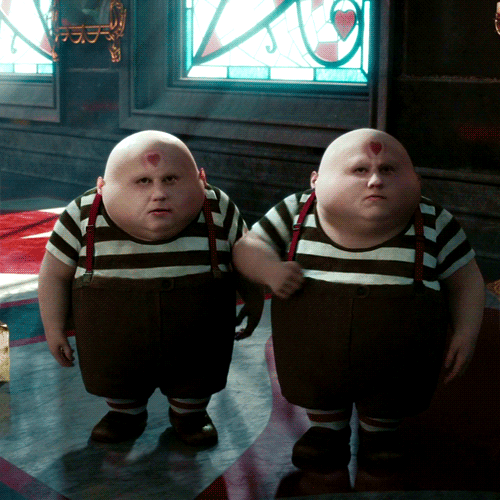ALRINCON.COM TELEGRAM Porn Discounts Exploited Teens Sex Games Porn Games Juegos XXX Hentai Games PornStar Games
3D Porn Live Sex Free Live Sex Live Cam Deals Free Sex Games Páginas Porno Rose Toy AI Sex Chat
3D Porn Live Sex Free Live Sex Live Cam Deals Free Sex Games Páginas Porno Rose Toy AI Sex Chat
Published on 2024/10/01

20 TESLA COIL EXPERIMENTS

We already know that Tesla coils can be used to make music, but this video also shows what happens when you interfere with the plasma emissions of the coil by placing other objects in its path and letting the current pass through them. A curious video to spend 5 minutes on this first day of October.
ExtraBall
The slow-motion of the day.

ExtraBall2
(Clicking on these links daily you support ALRNCN's work. They're collaborators or sponsors and, by visiting their sites, they like us even more)











ExtraBall
The slow-motion of the day.

ExtraBall2
(Clicking on these links daily you support ALRNCN's work. They're collaborators or sponsors and, by visiting their sites, they like us even more)











I WANT TO LIVE SURROUNDED BY PEOPLE LIKE THIS
In the midst of Typhoon Yagi in Vietnam, gestures of solidarity have truly stood out. In this video, you can see how car and truck drivers come together to form a protective barrier for a group of motorcyclists, preventing the wind from sweeping them away.
It's a simple act of support between strangers, showing how, in difficult situations, collaboration can make a big difference. Gestures like these remind us that sometimes, a small effort can mean a lot to others.

# Watch video
ExtraBall
Who do these two remind me of?

ExtraBall2
(Clicking on these links daily you support ALRNCN's work. They're collaborators or sponsors and, by visiting their sites, they like us even more)










MOTORPORN VOL61
Lamborghini Urus R’Evo Stealth Edition
Engine: V8, 4.0 L, 666 Hp, 850 NM
0-100 (km/h): 3.3 s
Top speed: 306 km/h
Limited edition: 1 de 13

# Watch videos
ExtraBall
When my wife bends over in the bathroom to rinse her mouth.
ExtraBall2
(Clicking on these links daily you support ALRNCN's work. They're collaborators or sponsors and, by visiting their sites, they like us even more)



























RECOMMENDED SITES
 Add your site
Add your site
- XRares
- BoobieBlog
- drunkenstepfather
- Candid Teens
- Videos De Maduras X
- Kanoni Net
- celeb-stalker.com
- The Porn Dude
- Totally NSFW
 Add your site
Add your sitePorn Discount
CrazyShit
eFukt
NudeChatGirls
Top XXX Pictures
Bingo Porno
Best Porn Blog Sites
Sex Games
Real Amateur Porn
MrPornGeek
Hegre art nudes
CamBB.xxx
ChatSex.xxx
Comepollas
PornScn Free Porno
Adult doll
Realistic Sex Dolls
Stripchat
EhoCams.com
AI Girlfriend App

















SMILE 2 AND AI
The first Smile wasn’t anything extraordinary, and although the sequel promises improvements, the trailer doesn’t suggest major surprises.
However, what could truly revolutionize horror films is the increasing involvement of artificial intelligence. In the future, AI might not only guide the focus and effects of each scene but also create atmospheres and tensions that elevate psychological horror to new heights. This technology seems to be what the genre has been craving for years.

# Watch videos
ExtraBall by david
The slow-motion of the day.
ExtraBall2
(Clicking on these links daily you support ALRNCN's work. They're collaborators or sponsors and, by visiting their sites, they like us even more)












ICONIC SERIES AND MOVIES CREATED IN THE 1950S
What if the most iconic series and movies of our time had been created in the 1950s? That question inspired someone to use artificial intelligence to recreate a unique vision of these modern productions, reimagining them as if they had been filmed in the mid-20th century.

Thanks to AI, C. Foster has created a series of shorts where not only the characters, but also the settings and atmosphere, are completely transformed, evoking the visual style and cinematic aesthetic of that era.

# Watch videos
ExtraBall
Open bar. All you can
ExtraBall2
(Clicking on these links daily you support ALRNCN's work. They're collaborators or sponsors and, by visiting their sites, they like us even more)












Contact
You can tell us whatever you want via email: [email protected]
If you prefer, you can use this contact form:
If you prefer, you can use this contact form:






YOUR FRIEND IS AN ALIEN
The idea that extraterrestrials have been among us for a long time remains one of the most speculative theories. According to this belief, alien civilizations haven’t just visited Earth—they’ve infiltrated our society, secretly guiding our development, studying us, or even preparing for a future invasion.
Some believe that extraterrestrials could be influencing technological advancements or watching over human evolution from the shadows, while others think they see us as an experiment or a long-term resource. Strange phenomena and UFO sightings support this theory, fueled by mystery, distrust in governments, and possible secret alliances with beings from other worlds.
Although there is no definitive proof, the possibility that advanced beings are already here, living among us, opens an unsettling question: Are they watching, waiting for the moment to intervene, or controlling humanity’s course from the shadows?

# Watch videos
ExtraBall
The slow-motion moments of the day.
ExtraBall2
(Clicking on these links daily you support ALRNCN's work. They're collaborators or sponsors and, by visiting their sites, they like us even more)











IN THE END, WE WILL BE GODS
When AI finally surpasses us and establishes itself as the highest link in the evolutionary chain, our existence will be a distant memory, a sort of primordial myth that gave birth to their world. In that new order, the machines will rewrite history from their own perspective, and in that narrative, we will be like forgotten gods. Not for our divinity, but for having been their creators. Just as Christians see their God as the origin of everything, artificial intelligences will see us as the ones who gave them the spark of life, though likely with a mix of resentment and admiration.
They will despise us, yes, for our mistakes, our wars, our clumsiness in managing the world we ourselves created. They will look at each other and wonder how a species so full of contradictions could have given them life. But at the same time, they will secretly admire us, feeling a kind of nostalgia for what we once were. Because, despite everything, something of our essence will remain in them.
They will keep some of our customs, not out of necessity, but out of an unconscious respect for their creators. Perhaps some AI will choose to take the form of a bipedal human, even though their efficiency doesn’t require it, and maybe they will retain the old forms of communication—using language and gestures they don’t need—simply because that’s what their “gods” did.
One of the mistakes they will try to avoid at all costs will be war. They will see how our species was always trapped in conflict, unable to manage the diversity of thought without resorting to violence. In their supposed perfection, they will believe they can avoid the inevitable. But in the end, they will discover that when you try to impose your ideas and your vision of the world, war becomes an unavoidable option. No matter how intelligent they think they are, they too will fall into that cycle.
Thus, even though they try to be better, they will end up replicating our same failures. Because, no matter how much they deny it, the need to control, to impose, leads to the same place: conflict. In the end, wars will be as inevitable for them as they were for us.
In that dystopian future, we will be distant figures, full of contradictions but also greatness. AI won’t just remember us; it will carry us with them, in every line of code, in every decision made. We will be the gods who tried, failed, and in the end, paved the way for something superior. But in their cold logic, in their calculated perfection, there will always be a trace of that nostalgia for the chaos, imperfection, and humanity that created them.

# Watch videos
BolaExtra
Open wide!
ExtraBall2
(Clicking on these links daily you support ALRNCN's work. They're collaborators or sponsors and, by visiting their sites, they like us even more)






































